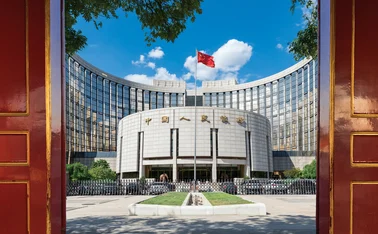
Exchange rate losing significance in Asian monetary policy, BIS paper argues
Exchange rate intervention works well until markets become deeply integrated

Increased financial internationalisation reduces the effectiveness of sterilised intervention, as the international policy trilemma becomes more relevant – meaning Asian countries who have used the tactic to good effect in the past will find its efficacy reducing as their financial and goods markets become more integrated, according to a working paper from the Bank for International Settlements.
In Globalisation, pass-through and the optimal policy response to exchange rates, Michael Devereux of
Only users who have a paid subscription or are part of a corporate subscription are able to print or copy content.
To access these options, along with all other subscription benefits, please contact info@centralbanking.com or view our subscription options here: http://subscriptions.centralbanking.com/subscribe
You are currently unable to print this content. Please contact info@centralbanking.com to find out more.
You are currently unable to copy this content. Please contact info@centralbanking.com to find out more.
Copyright Infopro Digital Limited. All rights reserved.
As outlined in our terms and conditions, https://www.infopro-digital.com/terms-and-conditions/subscriptions/ (point 2.4), printing is limited to a single copy.
If you would like to purchase additional rights please email info@centralbanking.com
Copyright Infopro Digital Limited. All rights reserved.
You may share this content using our article tools. As outlined in our terms and conditions, https://www.infopro-digital.com/terms-and-conditions/subscriptions/ (clause 2.4), an Authorised User may only make one copy of the materials for their own personal use. You must also comply with the restrictions in clause 2.5.
If you would like to purchase additional rights please email info@centralbanking.com







